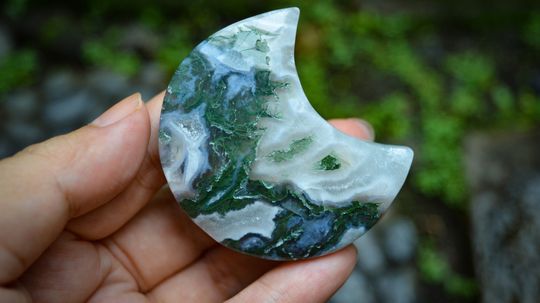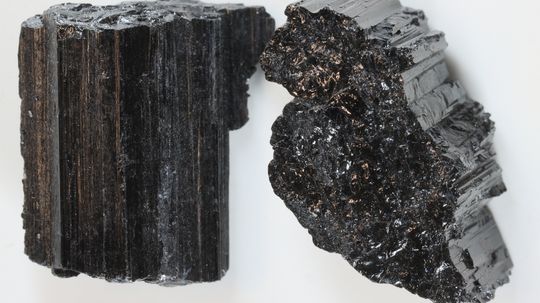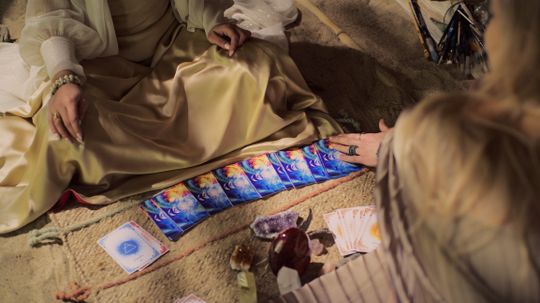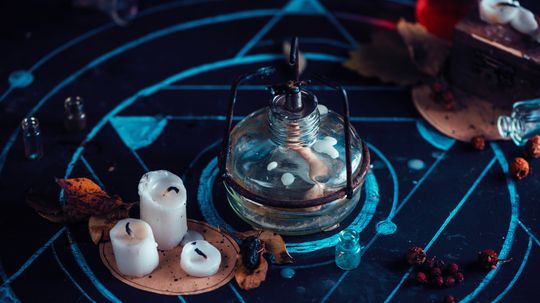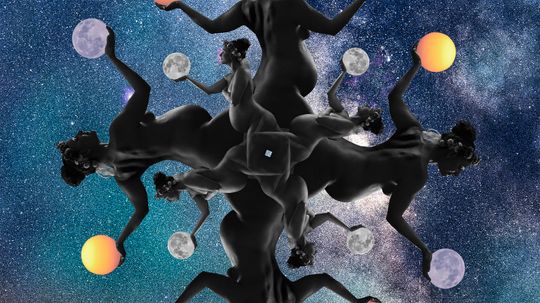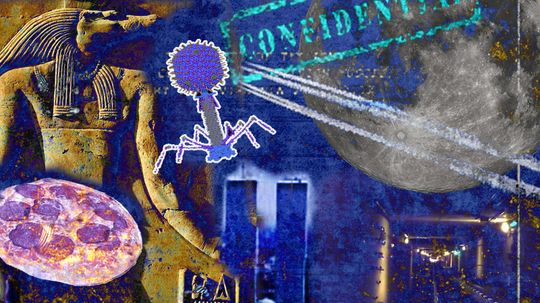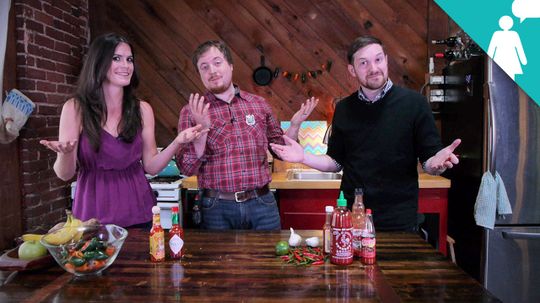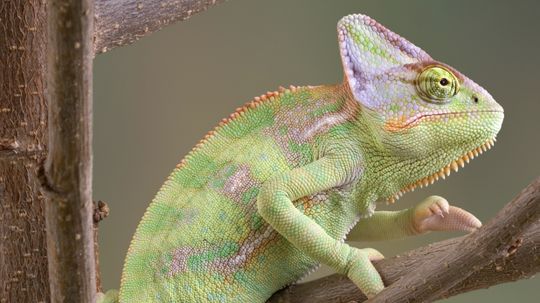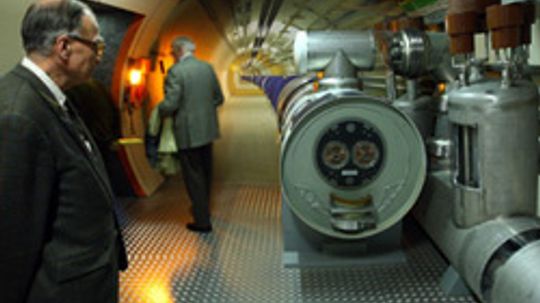Everyday Myths
There are certain aspects of everyday science that we think of as fact, but in reality may be pure urban legend. In this section, you can learn about some of the everyday science myths you may encounter.

Top 10 Ghost Tours
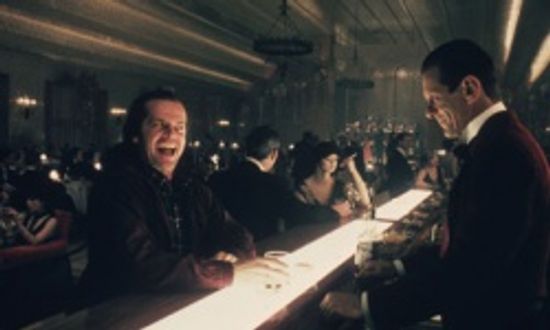
Top 10 Hotels That Will Scare the Daylights Out of You

What's So Scary About The Winchester House Story?

Spirit Guides Bring Believers Comfort, Insight, and Aid

Psychic Powers: Fun to Consider, Even Without Scientific Support

How to Manifest Love: Merging Mind and Heart

What Is a Group of Vampires Called? Depends on the Lore

What Is a Group of Dragons Called? It's Almost Too Obvious

The Beast of Bray Road: Wisconsin's Claim to Cryptid Fame

Do Marfa Lights Come From UFOs, Cars, the Military or Ghosts?

Solfeggio Frequencies: Healing Tones or Pseudoscience?

Is Sacred Geometry Related to Science or Is It Simply Beautiful?

What If Cows Didn't Exist?

What If Earth's Magnetic Field Flipped?

What If Humans Could Breathe Underwater?
Learn More / Page 2
Moss Agate meaning revolves around growth, emotional healing, and nature's balance. Discover its grounding energy and how it fosters abundance and inner peace.
By HowStuffWorks
Discover the hidden meanings behind this common dream—does it signal change, anxiety, or something deeper? Uncover the surprising interpretations now.
By HowStuffWorks
The surprising truth about black crystals: they're not just for banishing negativity. Discover why these powerful stones were used in ancient mystery schools, how they connect to the void between dimensions, and which black crystal holds the strongest grounding energy on Earth.
By HowStuffWorks
Advertisement
Sound healing works through a phenomenon scientists are just beginning to understand. Explore how these ancient vibrational techniques synchronize your brainwaves, reduce inflammation, and create profound healing beyond modern medicine's reach.
By HowStuffWorks
The Knight of Cups tarot card symbolizes romance, creativity, and intuition. Explore its meaning, emotional depth, and how it guides love, dreams, and inner growth.
By HowStuffWorks
Is the Ten of Pentacles appearing in your readings? Discover the ancient secret behind this powerful card that could transform your financial future. Most interpreters miss this crucial insight.
By HowStuffWorks
nlock the meaning of the Eight of Pentacles: discover how dedication and relentless effort can transform your skills, boost your success, and reveal the secret rewards waiting for those who master their craft-are you ready to see what your hard work could bring.
By HowStuffWorks
Advertisement
Unlock the secrets of the 2 of Pentacles: discover how this tarot card reveals the art of juggling life’s ups and downs, mastering balance, and making choices when everything feels uncertain-are you ready to find out what you’re really capable of.
By HowStuffWorks
Is the Five of Pentacles haunting your readings? Discover the 3 urgent messages this card is desperately trying to tell you.
By HowStuffWorks
What does the Nine of Pentacles reveal about your life? Discover its hidden meanings and how it can inspire you to cultivate a life of independence and prosperity.
By HowStuffWorks
The Six of Pentacles is more than just a card—it's a guide to understanding generosity. Explore its meanings and how it can enrich your life.
By HowStuffWorks
Advertisement
Uncover the surprising insights this tarot card reveals about your love life, career, and spiritual journey now.
By HowStuffWorks
Curious about the 4 of Pentacles? Discover its hidden messages about control, security, and personal boundaries. What secrets does it hold for you?
By HowStuffWorks
Ace of Cups tarot card symbolizes new beginnings in love, emotional fulfillment, and spiritual awakening. Learn how it represents deep connections and fresh opportunities.
By HowStuffWorks
Unlock the hidden meaning of the 123 angel number! This sequence holds a powerful message for your life path. Discover what your angels are trying to tell you.
By HowStuffWorks
Advertisement
Curious about the 1221 angel number? Uncover its hidden meanings, powerful messages, and how it can influence your life path.
By HowStuffWorks
Stop wondering about 717! Get the definitive guide to understanding its meaning, symbolism, and significance for your spiritual journey.
By HowStuffWorks
Seeing the 555 angel number? Discover its powerful meaning. Uncover the symbolism behind this sign and what it means for transformation, change, and your life path.
By HowStuffWorks
Is the world run by the Illuminati or just some reptilian overlords? Were the moon landings faked? Whether or not you believe this kind of stuff, you'll be entertained by our conspiracy theory quiz.
Advertisement
For some, the holidays are time of good cheer. For others, they're a season of anxiety and loneliness. Does that translate to a higher suicide rate?
Hot sauce is the most popular condiment in the U.S. Learn more about hot sauce in this video from HowStuffWorks.
Has this ever happened to you? You're blissfully showering away when suddenly something slimy grabs your leg. It's the curtain, and it's not letting go.
We're running out of oil. And diamonds. And while we're at it, chicken wings, too! Relax, these are actually examples of shortages that really aren't. What else is a fake scarcity?
By Chris Opfer
Advertisement
The blood in your veins is blue. Glass is a slow-moving liquid. If you touch a baby bird, its mother will abandon it. Not so fast -- if you learned any of those "facts" in school, what you learned was wrong.
Quantum physics is a term that's interchangeable with "quantum mechanics." It deals with matter and energy at the smallest scale available: the atomic and subatomic realms. Take a look at these quantum physics pictures.
